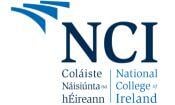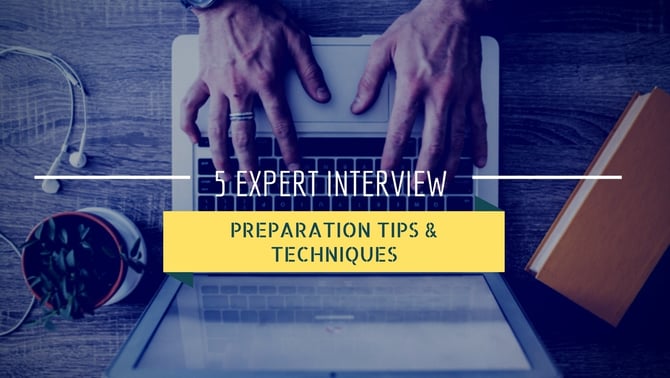Placing NCI students in the right jobs is something our Careers & Opportunities team are very good at - so you could say they know a thing or two about the jobseeking process, and have a couple of expert tips and tricks up their sleeves. Here, we've called on their expertise to share these 5 top tips to help you prep like a pro, for your next interview.
1) Know why you want THIS job with THIS company: the employer needs to know you want “their” job and not “any” job. You will need to have given consideration to the questions below – write out your answers as this will help you to remember.
a. What do I know about this type of work?
b. What have I done to find out more about this kind of work? (work placement, informational interviews, research)
c. What attracts me to this type of work? - Understand the job, the organisation, and where you fit
d. What kind of training/additional skills am I hoping to gain?
e. Why am I a suitable candidate and what evidence do I have of this?
f. What have I gained from my academic/employment/extra-curricular activities that will benefit me in this role?
g. What are my career ambitions/what do I want to be doing in 5years? Does this role fit with that?
2) Prepare for the question you are almost guaranteed to be asked: “Tell Me About Yourself”. Every interview has a beginning, a middle and an end, and very like when reading a story the beginning and the end are the most memorable- The beginning needs to catch your attention and encourage you to read on and the end needs to leave you with an impact. The great things about preparing for the beginning and the end of the interview is that you can almost certainly predict what will be asked. Most interviews start with the icebreaker question “Tell me about yourself”.
This is your personal statement summarising your education, skills, work experience and career plans. The interviewer has no interest in your life story, the number of cats, dogs, brothers, sisters you have – they are however very interested in what you can offer their company. A good answer will address your main selling points for this job and explain why you are interested in this position and company.
Crafting this answer so it sells you properly requires a great deal of practice - a long monologue is not good so a 1-2 minute answer is plenty.
Have a strategy for what you want the interview(s) to know – at no other stage in the interview do you have an opportunity to deliver a 2 minute pitch highlighting all your key skills and achievements that demonstrate why you suit this job.
3) Use the STAR technique: Employers will be looking for examples of when you have demonstrated the competencies that are outlined in the job spec. To showcase these competencies, the STAR technique is effective. Once you hear an interview question that starts with "Tell me about a time", "Can you give me an example", "Describe a situation", you should use a STAR story to showcase your experience.
‘S’ for Situation: Set the context for your story
T’ for Task: What was required of you - describe the challenge at hand and what needed to be done.
‘A’ for Action: Describe what you actually did (60-70% of the answer should be focused on the actions you took and what you contributed to the task.)
R’ for Results: Highlight the positive results of your actions- what you accomplished, what you learned, how your managers and team responded, and how your organisation recognised you. Wherever possible, quantify your achievements and improvements—e. g., “20% improvement in
Prepare a bank of 8-10 STAR stories that you can use during the interview. You can use your experiences from college assignments and projects, work experience, internships, positions of responsibility such as class rep, peer mentor, fundraising, sports, volunteering, travel abroad, scholarships, extra courses undertaken, hobbies and interests etc to develop these
4) Ask the right questions: As this final question is a near certainty, it is something you can really prepare yourself for. This is your opportunity to see whether this role, the quality of work, culture and progression opportunities match your careers aspirations. Have a number prepared as some will be answered throughout the course of the interview. Questions I like being asked include:
o What do you want this person to have achieved at the end of 3 -6 months for you to feel you hired the right person
o What is a typical day/ week like
o What percentage of the role involves x,y,z (if the role is varied)
o How is the team structured, number of people, background of the people etc
o What is the biggest priority for someone in the first month
o What is the next stage of the process
o When are you likely to hear
5) After the interview: Write down the questions you were asked. Reflect on your performance and learn from the questions you did not answer well so you can improve for the next one. Send a Thank You note, and if things don’t go your way this time, look for feedback so you can prepare even better the next time!
Check out more interview preparation tips or read the 10 CV tips that will get you to that interview! And if upskilling or gaining a new qualification is part of your career strategy, come to our next open event to learn about the courses that are now enrolling. 











